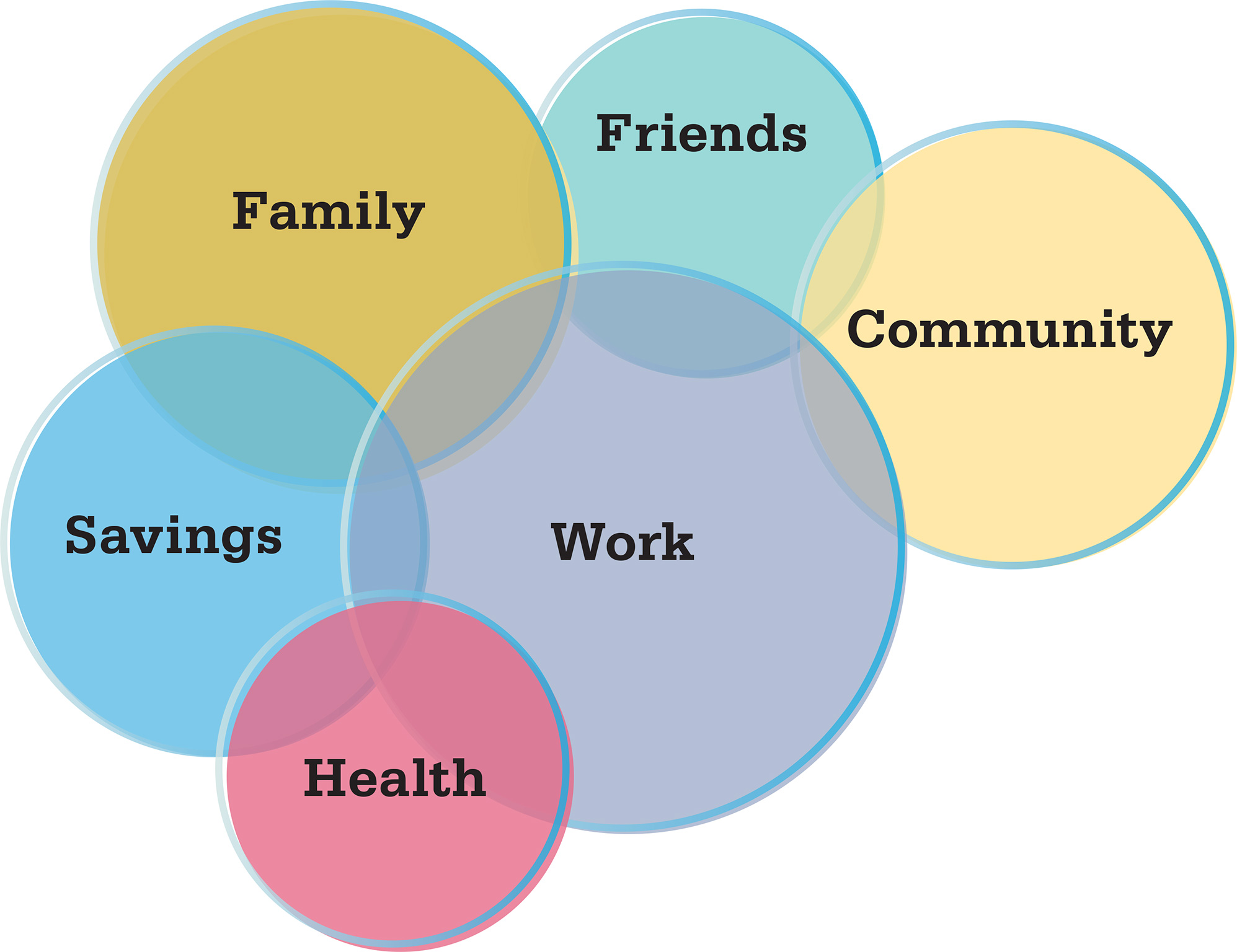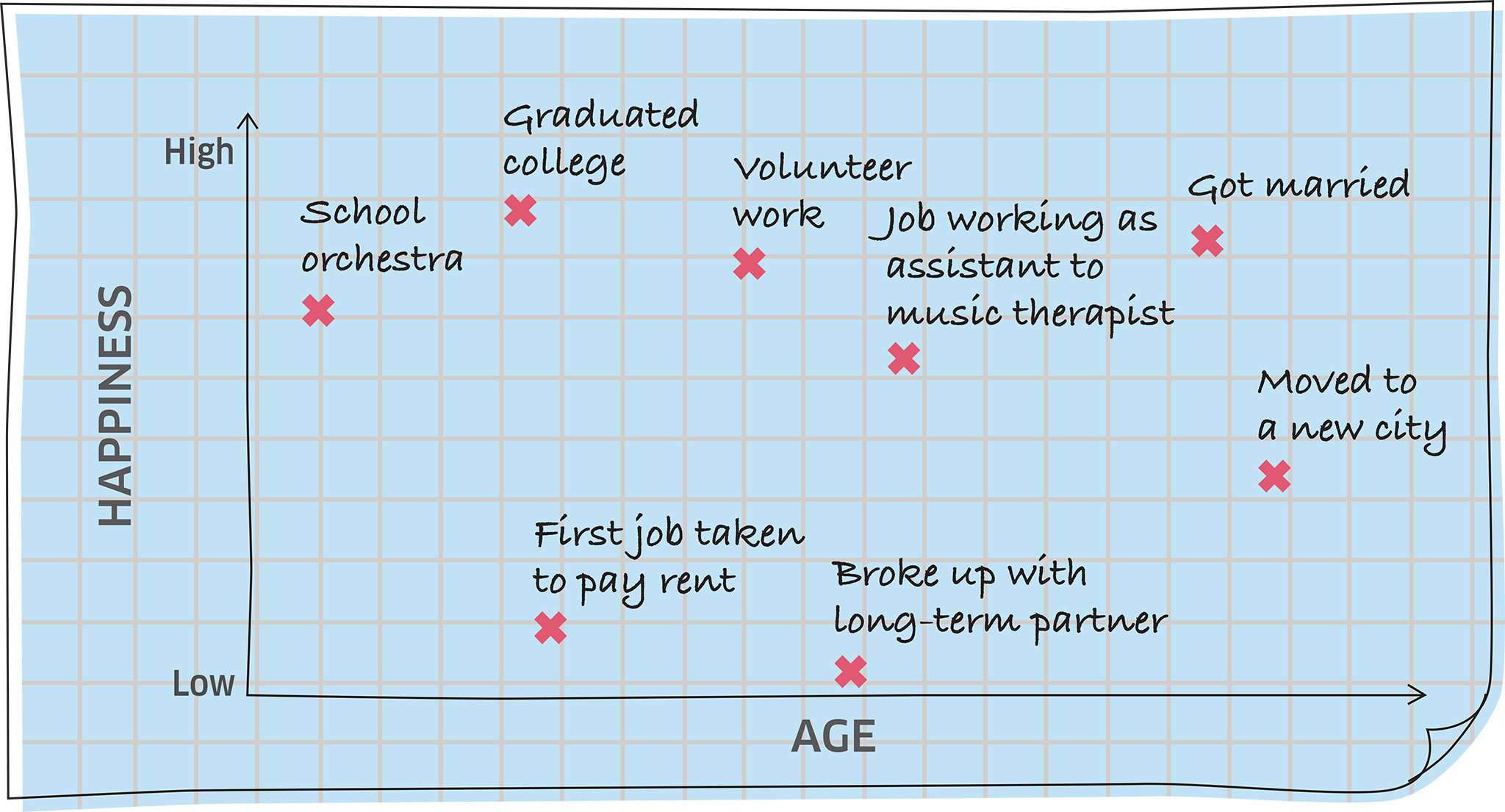
Can we ever achieve the perfect “work-life balance”? Maybe, but only with compromises. In any case, your priorities will shift as time goes by, so you need to keep reviewing your needs as your circumstances change.
Many people find themselves struggling to balance earning a living, being part of a family, and following their dreams. The ideal is for these things to support each other, but this can be hard to achieve.
Work and life
A concept psychologists have studied in recent years is that of “role accumulation”—that is, how we have to manage being different selves in different situations, such as home and work. Depending on how we handle things, this mix can be either a blessing or a burden.
On the positive side, family can support work and vice versa. Studies confirm that if we’re happy in one area, we can carry a good mood into the other; likewise, skills can be transferred—parenting can make us more comfortable with responsibility, work can teach us time-management skills that help with the family calendar, and so on. At the same time, these factors can buffer each other—if work is going badly, a good social life can support us, while pride in our job can keep our self-esteem high if things aren’t going so well at home.
How can we attain a good balance? A 2007 study for the Journal of Vocational Behavior argues that we need a high “CSE,” or Core Self-Evaluation. This means having:
- High self-esteem
- Low neuroticism—not seeing ourselves as vulnerable
- A high internal locus of control
- High self-efficacy.
If our CSE is positive, we are better able to use our work to help in our home life, and vice versa. A negative CSE, on the other hand, leaves us feeling that each interferes with the other. It’s worth noting that people with a high CSE may seek greater challenges and put themselves under more pressure, so the ideal state of mind is to rate ourselves well but beware of overcommitting. Understanding ourselves and our goals throughout our lives helps us to make choices and take actions to maintain balance and avoid burnout.
Pain or gain?
A 2012 study for the College of Business in Florida points out that, while role accumulation can be beneficial, it also has its negative side. If we’re deeply committed to both work and home, it can be hard to avoid exhaustion. The answer is to seek authenticity: what matters to you most? If you’re reaching for your dreams, juggling roles tends to seem more worthwhile.
Plot what matters to you most
To identify which areas of your life matter to you most, American psychologists Farid Muna and Ned Mansour suggest that you draw your life as a series of interlocking circles, like in the example below. Vary the size of the circles depending on how important each area is to you, and show where areas of your life overlap.

When you’ve mapped out your life and aspirations, talk over the following questions with your partner, trusted friends, mentors, and family. If you prefer, substitute “I” for “We.”
- Do I have a long-term wish list?
- What will make me happy 10, 20, or 40 years from now?
- What do I imagine are my future goals?
- What threats, opportunities, strengths, and weaknesses do I face?
- How will these impact my success?
- What do I want to accomplish with the rest of my life?
retro-plotting
Psychologists Farid Muna and Ned Mansour suggest a technique for analyzing what matters to you based on reflecting on past experiences. On a graph, plot events that made you happy or sad in relation to the high-to-low happiness axis. Don’t dwell in the past, but try to understand what it was that made events either happy or sad, so you can learn the lessons and apply them to your current situation.

